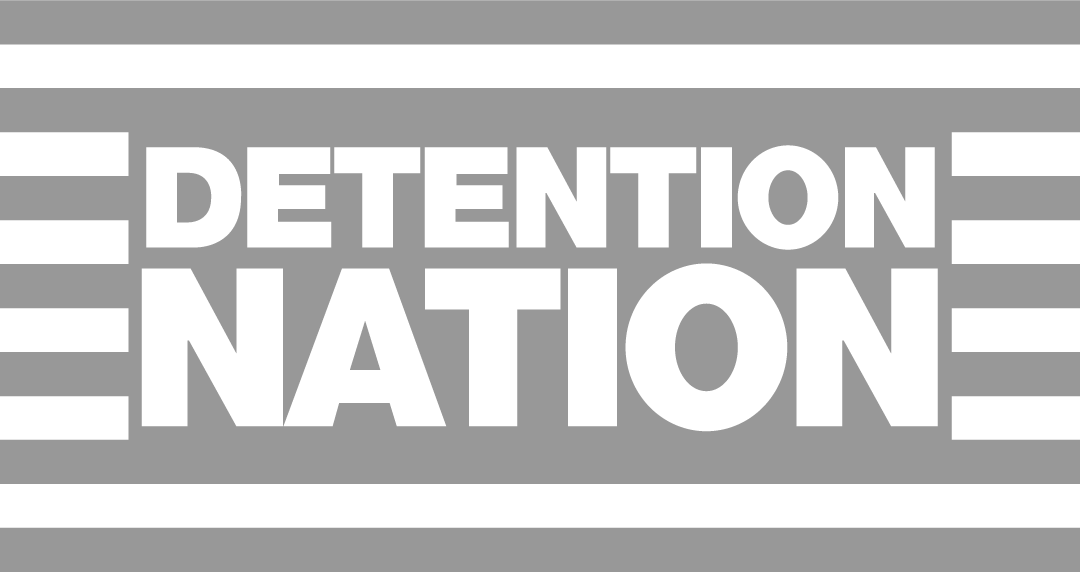"HIELERA" HOLDING FACILITY
1. View photos of the exhibition (use arrows or click/tap)
2. Watch the video component
The above video contains text excerpted from the Voice of Witness book,
Solito, Solita: Crossing Borders with Youth Refugees from Central America compiled and edited by Jonathan Freedman and Steven Mayers.
Solito, Solita: Crossing Borders with Youth Refugees from Central America compiled and edited by Jonathan Freedman and Steven Mayers.
“In another freezing cold room there were mothers who were suffering with their children – five years old, two years old, even seven or eight months old. I don’t know how they didn’t die.”
“En otra habitación helada había madres que estaban sufriendo con sus hijos: cinco años, dos años, incluso siete u ocho meses. No sé cómo no murieron."
“En otra habitación helada había madres que estaban sufriendo con sus hijos: cinco años, dos años, incluso siete u ocho meses. No sé cómo no murieron."
Pedro, unaccompanied minor, Solito, Solita
3. Read the essay component
Recent border crossers often call the concrete “ice boxes” where they are held in freezing-cold temperatures close to the border, “hieleras.” They are then transferred to “processing centers” where they are separated by age and gender in kennel-like cages. Migrants call these warehouses
“perreras,” a word previous migrant generations used to describe deportation vans. In 2018, the McAllen Processing Center became the emblematic symbol of kids and families in cages. However, even under the Biden administration, kids are still routinely held in torturous “hieleras” and “perreras” for several days or sometimes even more. Most recently, Customs and Border protection opened a child detention facility in Donna, TX with plans to build many more. The wire cages are gone but the cramped and dehumanizing conditions remain.
We must be wary, however, of arguing that cages are only bad for kids or for people without “criminal” records. In fact, whether migrants are being “processed” while CBP determines where they should go, or whether they are serving a “sentence” for a repeated border crossing, the conditions of their detention are experientially the same: cold rooms, insufficient food, rampant medical neglect sometimes to the point of death, and guards who think their job is to teach migrants a “lesson” or make up immigration policy on the spot: we’re sorry, but the United States is full.
In recent years, border crossers have resisted state-defined routes to death, choosing instead to present themselves at the border and ask for their duly-owed credible fear interview. The Trump-era policy of “metering,” or the “Remain in Mexico” program, sought to "weaponize" the border by forcing migrants to attend asylum court hearings in make-shift tents while waiting months or years for the “opportunity” to see a tele-judge. The Biden administration has begun to close these camps, but he has yet to close the “hieleras” and “perreras” that torture migrants of all ages at the border. Rather than seeing unaccompanied minors as a class of migrants that stands entirely apart from all others, we could begin to see all migrants as people in crisis; people in need of competent care and quick, efficient release without recourse to intrusive surveillance measures.
We must be wary, however, of arguing that cages are only bad for kids or for people without “criminal” records. In fact, whether migrants are being “processed” while CBP determines where they should go, or whether they are serving a “sentence” for a repeated border crossing, the conditions of their detention are experientially the same: cold rooms, insufficient food, rampant medical neglect sometimes to the point of death, and guards who think their job is to teach migrants a “lesson” or make up immigration policy on the spot: we’re sorry, but the United States is full.
In recent years, border crossers have resisted state-defined routes to death, choosing instead to present themselves at the border and ask for their duly-owed credible fear interview. The Trump-era policy of “metering,” or the “Remain in Mexico” program, sought to "weaponize" the border by forcing migrants to attend asylum court hearings in make-shift tents while waiting months or years for the “opportunity” to see a tele-judge. The Biden administration has begun to close these camps, but he has yet to close the “hieleras” and “perreras” that torture migrants of all ages at the border. Rather than seeing unaccompanied minors as a class of migrants that stands entirely apart from all others, we could begin to see all migrants as people in crisis; people in need of competent care and quick, efficient release without recourse to intrusive surveillance measures.
4. See the performance component
In December 2020, at the height of the COVID-19 pandemic, Sin Huellas members installed DETENTION NATION at Elgin Street Studios. In the space created, an ensemble of performers created the following Performance GIFs.
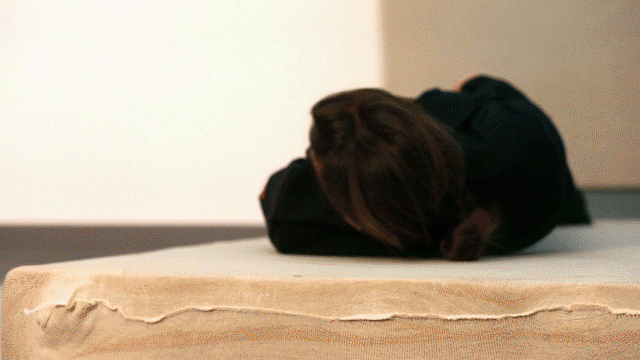
"One Bed Then Another"

"We Are Watched"
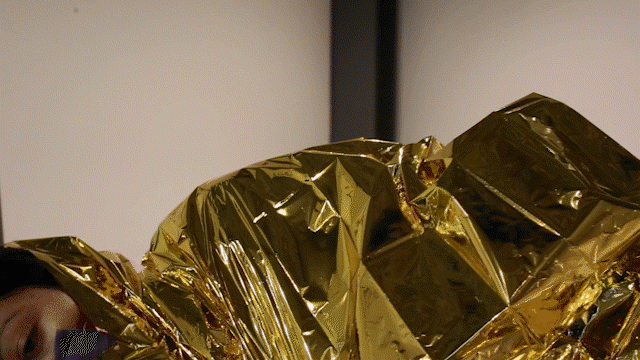
"In My Bunk"
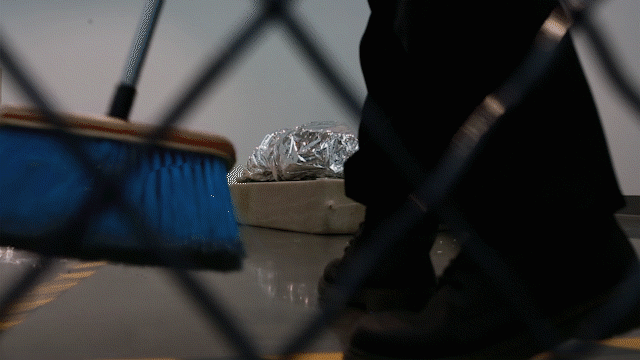
"Sweeping Around The Bodies"
The videos and images in this installation space are based on images and stories gathered from the adult and child immigrant prisons listed below.
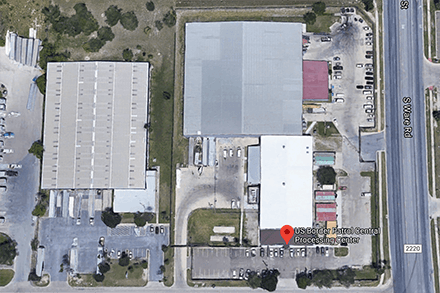 McAllen Central Processing Center
McAllen Central Processing Center3700 W Ursula Ave
McAllen, TX 78503
Operated by CBP
Closed for “renovation” until 2022
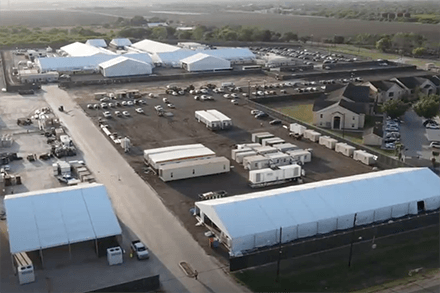 Delphi Emergency Intake Site
Delphi Emergency Intake SiteDonna, TX
Operated by Health and Human Services
Under construction as of 2021
